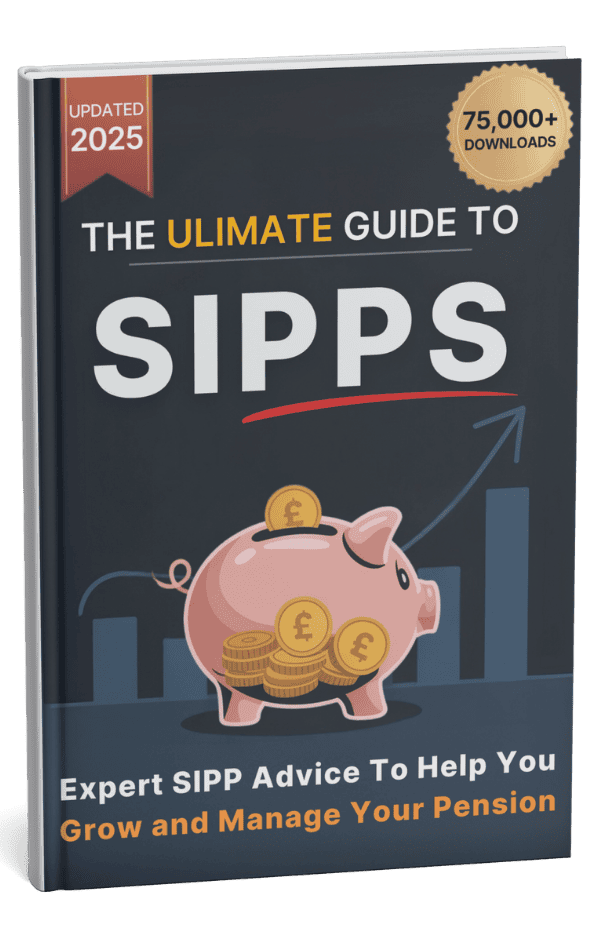
What Happens to My SIPP on Death? 6 Crucial Facts for 2025
See How Much Your Future Pension Income Could Be In Just 60 Seconds — No Fees, No Obligation.
How Much Could You Unlock?
Why Homeowners Trust Us
Try Our Free Pension Calculator
Quick, Safe Estimate

No Commitments
Key Takeaways
- SIPPs allow you to nominate beneficiaries, avoiding probate delays.
- Tax treatment depends on whether the SIPP holder dies before or after age 75.
- SIPPs usually fall outside the estate for inheritance tax planning.
- Beneficiaries can opt for a lump sum, income drawdown, or an annuity.
- Charities can inherit SIPPs tax-free.
- Expressions of Wishes should be updated regularly to ensure a smooth transfer.
‘What happens to my SIPP when I die?’ is a question that resonates with many looking to secure their loved ones' futures.
Shockingly, only 1 in 5 respondents recently surveyed by Opinium Research had nominated someone to receive their pension if they died.1
This highlights the critical importance of not only planning for retirement but also ensuring that our intended beneficiaries are adequately provided for.
In This Article, You Will Discover:
In this article, EveryInvestor explores the ins and outs of SIPP inheritance and beneficiary designations.
This guide aims to provide a comprehensive overview of what happens to a SIPP after you die, ensuring you are well-equipped to make informed decisions for your loved ones' future.
Our content’s crafted using insights from pension specialists and regularly checked and updated to ensure accuracy.
Let’s take a look at how you can make informed decisions and plan your pension's future.
What Is a SIPP?
A Self-Invested Personal Pension (SIPP) is a UK-based pension that allows individuals to actively manage their retirement savings. Unlike traditional pensions, SIPPs offer wider investment options including funds, shares, and property.
They are particularly popular among those looking for flexibility and control.
For a full overview of SIPP types, visit our What's a SIPP? guide.
What Happens to a SIPP When the Account Holder Dies?
When a SIPP holder dies, the remaining funds are typically passed on to nominated beneficiaries.
If no nomination has been made, the pension provider or the SIPP trustees may follow default distribution policies.
Before Age 75
If you die before your 75th birthday, the entire SIPP can be passed to your beneficiaries tax-free—provided you’ve designated them in advance and they claim within two years.
After Age 75
If you die on or after your 75th birthday, any withdrawals your beneficiaries make will be taxed as income at their personal rate.
This applies whether the funds are withdrawn as a lump sum, drawdown, or annuity.
This flexibility makes SIPPs a strategic estate planning tool, especially if timed appropriately.
Does a SIPP Form Part of an Estate for Inheritance?
No, a SIPP does not automatically form part of your estate when you die, meaning that it’s not typically subject to inheritance tax (IHT) and can be passed on directly to your nominated beneficiaries.
Is a SIPP Part of Your Estate for Tax Purposes?
A SIPP is generally not considered part of your estate for inheritance tax purposes, allowing you to pass on your pension savings directly to your beneficiaries without them being subject to the 40% inheritance tax, provided you die before 75.
Can a SIPP Be Inherited?
Yes, a SIPP can be inherited by your chosen beneficiaries; you should ensure your pension provider has up-to-date details of your nominated beneficiaries to make the process smooth.
Who Can Inherit a SIPP?
Anyone can inherit your SIPP, including:
- Your spouse or civil partner
- Children, grandchildren, and other family
- Friends or dependants
- A trust or registered charity
You can nominate multiple beneficiaries and allocate a percentage of the benefits to each.
For guidance on planning your SIPP's future distribution, visit our SIPPs Adviser Questions guide.
How to Nominate Beneficiaries
You must complete and submit either an Expression of Wishes or Nomination of Beneficiaries form to your SIPP provider.
- A Nomination Form is binding guidance to the provider.
- An Expression of Wishes is more informal and flexible.
Regularly review your form, especially after major life changes like marriage, divorce, or the birth of a child.
How Many Beneficiaries Can I Add to My SIPP?
You can add as many beneficiaries to your SIPP as you want to receive a portion of your pension pot.4
Review and update your beneficiary nominations periodically to account for any life changes, such as the death of a beneficiary or a change in marital status.
What Should My Beneficiaries Know Before I Die?
Before you die, your beneficiaries should know that you’ve nominated them and understand how to go about claiming the SIPP benefits.
Keep them informed about your pension provider's contact information and the location of all relevant documents to facilitate a smooth and efficient process after your death.
Inheritance Tax and SIPPs
SIPPs typically sit outside your estate for inheritance tax (IHT) purposes.
This means they’re not counted toward the £325,000 IHT threshold, avoiding the standard 40% tax.
SIPP and Inheritance Tax (IHT): How Does It Work?
The value of your SIPP is not typically included in the calculation of Inheritance Tax (IHT) liabilities upon your death, so it can’t push your estate over the threshold of £325,000 where a normal rate of 40% IHT applies.8
However, if you make a withdrawal from your SIPP, the amount withdrawn becomes part of your estate for IHT purposes, even though it was originally part of your pension pot.9
Is a SIPP Subject to Inheritance Tax?
No, a SIPP is generally not subject to inheritance tax, making it an efficient vehicle for passing on wealth; income tax applies to SIPP beneficiaries when they access the inherited pension funds.
The tax rate will vary depending on the beneficiary's income and the withdrawal option chosen.
Beneficiaries may opt for lump sum payments, flexi-access drawdown, or annuity purchases, each having different income tax implications.10
Exceptions
If you withdraw funds from your SIPP during your lifetime and don’t spend them, those withdrawn funds become part of your estate and may be subject to IHT.
For a complete inheritance planning breakdown, see our How Does Inheritance Protection Work with Equity Release? guide.
Beneficiary Withdrawals: What Are the Options?
Beneficiaries have three main options upon inheriting a SIPP:
Lump Sum
The entire pension fund can be withdrawn in a single payment.
While convenient, this method may increase a beneficiary’s income tax liability if the SIPP holder died after 75.
Flexi-Access Drawdown
Funds remain invested, and the beneficiary can withdraw income as needed.
Withdrawals are taxed if the original owner passed away after 75.
Annuity Purchase
Beneficiaries can use the funds to purchase an annuity, providing a fixed income over time.
Useful for those looking for predictable income streams.
Managing SIPP After Death
Management of a SIPP on death requires careful planning.
Ensure your loved ones are aware of your pension provider’s details and the location of your Nomination Form.
If No Beneficiary Is Named
If you die without nominating a beneficiary, your SIPP may default to your spouse or next of kin.
Otherwise, funds can become part of your estate, potentially delaying distribution and triggering inheritance tax.
To avoid this, ensure your plan is updated using your SIPP provider’s beneficiary process.
Charitable Giving
If part of your estate planning involves supporting a cause, designating a SIPP to a registered charity ensures tax-free transfer after death.
How Do SIPP Death Benefits Work?
SIPP death benefits can be received through lump sum payments, drawdown, or an annuity.

Let’s take a quick look at how beneficiaries can access pension funds when a SIPP holder passes away:
- Lump sum payment: Beneficiaries have the option to take out the full SIPP value in one go. However, doing so may attract income tax on the amount withdrawn.12
- Flexi-access drawdown: Instead of withdrawing everything, beneficiaries can let the SIPP remain invested, making withdrawals when necessary. These withdrawals are subject to income tax.13
- Annuity purchase: Beneficiaries can also convert the SIPP into an annuity, which offers a consistent income over time. This choice comes with its own income tax considerations.14
It's worth noting that tax laws can change, and everyone's individual circumstances are different.
As such, while this guide offers a comprehensive overview, every individual's situation is unique, and consulting with a specialist can offer tailored advice.
How Effective is SIPP Inheritance & Estate Planning?
Effective SIPP inheritance and estate planning ensures that your retirement savings are distributed in alignment with your wishes after your death.
By meticulously nominating beneficiaries, understanding tax implications, and regularly reviewing your choices in light of personal and legislative changes, you can maximise the benefits passed on to loved ones and potentially mitigate unnecessary tax burdens.
It's a proactive approach to safeguarding your assets and providing clarity and ease for beneficiaries during a challenging time.
Seeking professional advice can help optimise the distribution of your pension assets and minimise tax liabilities.
What Happens to My SIPP if I Haven’t Nominated Any Beneficiaries?
If you haven't nominated any beneficiaries, the distribution of your SIPP will be determined by your pension provider's rules and regulations.15
Typically, your pension provider will follow a set hierarchy to determine who’ll receive the benefits.
The inheritance hierarchy may look like this:
- Spouse or civil partner: The pension provider will usually pay the benefits to them as your default beneficiaries.
- Financial dependents: If you do not have a spouse or civil partner, the pension provider may look for any financial dependents you may have, such as dependent children. They may consider providing the benefits to support those dependents.
- Estate: If you do not have any financial dependents, the SIPP assets may become part of your estate. The pension provider may pay the benefits to your estate, and they will be distributed according to your will or inheritance laws.
It's important to note that if your pension provider pays the benefits to your estate, this may have implications for Inheritance Tax, as the pension assets will be treated as part of your estate's value.
This can lead to delays and potential disputes among your surviving family members.
What Happens if My Beneficiary Dies?
If your beneficiary dies and hasn’t withdrawn all of the inherited SIPP funds, then these can be passed on again.

In other words, your beneficiary’s beneficiaries can inherit any remaining SIPP funds.16
Common Questions
No. Funds held within a SIPP are usually outside the estate and not subject to inheritance tax.
Your SIPP doesn’t follow your will. Funds are distributed according to your pension provider’s rules and your Expression of Wishes.
Yes, SIPPs can be left to anyone—including friends or charities.
Yes, if you die before 75 and your beneficiaries claim within two years.
If your primary beneficiary dies before you, their portion passes to your contingent beneficiary. Always have backup designations in place.
In Conclusion
Understanding what happens to your SIPP on death is a vital part of sound retirement and estate planning.
By nominating beneficiaries, rechecking those choices regularly, and being aware of tax implications after 75, you can ensure a seamless financial legacy for your loved ones.
SIPPs provide powerful tax benefits and flexibility, but like all pensions, they need regular attention.
Ready to plan your legacy? Start by reviewing your beneficiary nomination today or speak to a qualified adviser.
Disclaimer:
Information contained in this article was accurate as of July 2025. Pension rules, tax laws, and provider practices are subject to change. Always seek regulated financial advice when making decisions.

Found an Error? Please report it here.






 100% private. No pressure. Just friendly guidance.
100% private. No pressure. Just friendly guidance.

